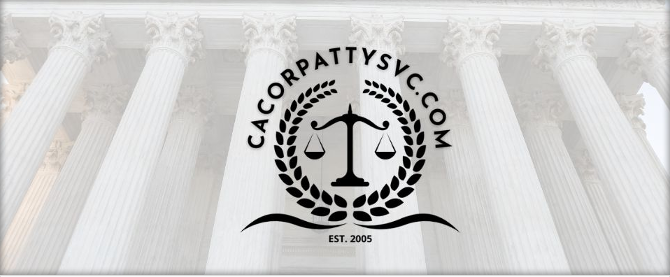
CCAS carries professional liability Insurance and errors & omissions coverage
United States Courts RSS feed
Providing services for over 25 years to the Commercial Lending, Real Estate and Legal Support Community.

CCAS carries professional liability Insurance and errors & omissions coverage
United States Courts RSS feed
|
CCAS | UCC, Lien, Pending Suit, Judgment & Bankruptcy Searches FAQ What is defined as public record? Public records refers to information that has been filed or recorded by public agencies, such as corporate and property records. Public records are created by the federal and local government, (vital records, immigration records, real estate records, driving records, criminal records, etc.) or by the individual.
What is the purpose of a UCC search? Uniform Commercial Code (UCC) filings allow creditors to notify other creditors about a debtor's assets used as collateral for a secured transaction. UCC liens filed with Secretary of State offices act as a public notice by the "creditor" of the creditor's interest in the property.
What is a UCC search report? A UCC filing, also known as a UCC-1 Financing Statement, is a legal form a creditor uses to indicate that it's interested in the business or personal property a debtor has put up as collateral.
Do UCC liens expire? UCC Financing Statements: Most filings are effective for five years. For example, if you file on May 1, 2020, then the filing will expire (lapse) on May 1, 2025. If the debtor is a transmitting utility, the record is effective until a termination is filed.
What is a UCC Judgement? A UCC (Uniform Commercial Code) lien, either is a general or a specific lien on most business property, and certain kinds of personal property. In most states, a UCC lien does not cover real estate property. ... You can do this at the same time you record other more powerful liens or do other judgment enforcement actions.
What is the difference between a lien and a judgment can a judgment become a lien? The easy definition is that a judgment is an official decision rendered by the court with regard to a civil matter. A judgment lien, sometimes referred to as an “abstract of judgment,” is an involuntary lien that is filed to give constructive notice and is to attach to the Judgment Debtor's property and/or assets.
What type of lien is a judgment lien? A judgment lien is a type of nonconsensual lien (a lien that attaches to your property without your agreement). It's created when someone wins a lawsuit against you and then records the judgment against your property.
What does a lien search show? Before you sign on the dotted line, get a lien search. A lien search will tell you if a property has a lien on it from being used as collateral in a loan or another form of debt. The types of properties eligible for a lien search include land, businesses and vehicles.
What is a lien record? A "lien" is a notice that attaches to your property, telling the world that a creditor claims you owe it some money. ... It is generally filed with a county records office (for real property) or with a state agency, such as the secretary of state (boats, mobile homes, office equipment, and the like).
What is a lien release document? A Lien Release is a form that removes a lien on a property once the property owner pays the lienor in full. The lienor is the person who placed the lien against the property. A lien is a protective legal document that establishes the lienor's claim to another party's assets to satisfy a debt or outstanding payment.
Where should you run lien searches? The searches should be performed at the state's central filing office (the Secretary of State's office in most states) where the debtor is located. For non-registered entities, the searches should be performed at the location of the entity's chief executive office.
CCAS Disclaimer Searches performed by CA Corporate & Attorney Services; Inc. (CCAS) are only of the general Jurisdiction for the last 10 years unless requested otherwise. CCAS does not guarantee the accuracy or completeness of the Civil Index. Information contained in this report was obtained directly from public records that are maintained by government officials. CCAS will not undertake or assume any part of the customer’s business/ legal or similar risks and shall not be liable for any losses resulting from negligence regardless of the cause. © 2024 CA Corporate & Attorney Services Inc. |